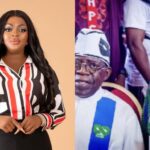This and other actions, the court said, would have led to “serious interfering in, disrupting or undermining the performance of duties and functions by the law by the (Hong Kong) government”.
As evidence, the court cited letters and campaign materials found at the defendants’ homes and on their devices when they were arrested more than three years ago.
The court acquitted two of the defendants – former district councilors Lawrence Lau and Lee Yue-Shun – saying it “cannot be sure” that they were “parties to the scheme” or that they “had the intention to subvert the state’s power”. But the justice department said they would appeal the acquittals.
The 47 make up some of the most prominent names in the pro-democracy movement, going back to 2014 when thousands protested for free and fair elections.
“They encapsulate the diverse and universal yearning for democracy and freedom among Hong Kong’s citizens,” Simon Cheng, who was accused of violating the NSL, told the BBC. He fled Hong Kong and has since been granted asylum in the UK.
The case drew huge attention as yet another test for Hong Kong’s civil liberties under Beijing’s rule. Along with the trial of billionaire Jimmy Lai, it spotlighted the growing criticism that the National Security Law (NSL) has been used to crush dissent. However China has said the law restored stability to the city in the wake of the 2019 protests and is essential to maintaining order.
Ms Chan is the chairperson of the League of Social Democrats, one of the very few pro-democracy political groups that still exist in Hong Kong.
Rights groups and several Western countries condemned the verdict, repeating concerns that the prosecutions were “politically motivated”.
The UK said the case showed how authorities have used the National Security Law (NSL) to “stifle opposition and criminalize political dissent”.
It “tarnishes [es] Hong Kong’s international reputation” and “sends a message that Hong Kongers can no longer safely and meaningfully participate in peaceful political debate,” said UK Minister for the Indo-Pacific Anne Marie Trevelyan.
The EU said it “marks a further deterioration of fundamental freedoms and democratic participation” and Australia expressed “strong objections” to the way NSL’s “broad application”. One of the convicted campaigners, Gordon Ng, is an Australian citizen.
In response to the verdict, Beijing’s foreign ministry said, “Hong Kong is a society based on rule of law… No one can conduct illegal activities under the banner of democracy and try to escape legal sanctions.”
“We resolutely oppose certain countries intervening in China’s domestic affairs and smearing or undermining Hong Kong’s legal system by individual judicial cases,” said the ministry’s spokeswoman Mao Ning.
Hong Kong’s officials hail the NSL’s nearly 100% conviction rate but legal experts say that shows how it is being used to silence dissent – nearly 300 people have been arrested under it for a wide range of acts.
Sentencing is expected at a later date, including for the remaining 31 who pleaded guilty. Subversion carries a maximum term of life imprisonment and it’s unclear if a guilty plea warrants a reduced sentence under the NSL.
Many of the guilty pleas were “likely taken as a pragmatic decision, [as the activists] recognise that their chances of a fair trial are slim,” Mr Cheng said.
“It’s a tragic reflection of how activists are being forced into concessions just to mitigate the severity of their punishment under an increasingly authoritarian regime,” he said.

